The Truth About Diesels
That clatter you hear is the sound of new diesel engines for passenger cars, promising greater efficiency and better mileage. The smell accompanying that clatter represents a major step away from the clean air standards that contributed to the major reduction in air pollution in the US.
Diesels, even the newest and cleanest, are inherently dirty engines. Particulates and NOx compounds are the worst offenders, but diesel exhaust is laced with other carcinogens like benzene, ring compounds and aromatics. The distinctive smell of diesel exhaust is largely a function of aldehydes, another family of unpleasantly harmful compounds.
While the new diesels meet the minimum emission standards, they fall far short of both the higher standards met by many cars and trucks, and even farther short of the new tougher standards required for 2007. While emission standards are a dense thicket of confusing rules, it is safe to say that current diesels meet only the lowest, dirtiest standards. Many manufacturers voluntarily certify that their gasoline engines meet much stricter standards, such as LEV (Low Emission Vehicle), ULEV (Ultra Low Emission Vehicle), or PZEV (Practically Zero Emission Vehicle). If today's diesels were held to these stricter standards, there would be no diesel cars in the US.
With the advent of stricter minimum standards in 2007, passenger car diesels will have to have an exemption in order to be legal. The complex emission control systems, such as particulate traps and urea injection, are still untested in the market, and their costs make passenger car diesels cost-prohibitive.
Low sulfur diesel fuel is a key element in the attempt to make diesel engines acceptably clean. All of the new 'clean diesel' engines are relying on fuel that contains much less sulfur than fuel currently supplied in the US. Low sulfur diesel is bound to cost more since more complex refinery procedures are required. Ironically, the increased demand for low sulfur fuel will also increase our demand for imported fuel. In 2003, the US used about 1000 million barrels of diesel fuel, of which 49 million barrels were imported. At least in the short run, a jump in the demand for low sulfur fuel will require the importation of more diesel fuel from European refineries.
European countries have embraced the diesel automobile in great numbers. European countries are willing to accept the additional air pollution caused by the diesel engine. The trend in European environmental policy has to been to focus on carbon dioxide, which is relatively harmless to people but may cause global warning. Diesels, because they run with an excess of oxygen, produce very little carbon dioxide, and almost no carbon monoxide. American policy has focussed on pollutants that cause real harm to people, such as the particulates emitted by diesel engines. It is a very different approach to basic public health policy issues.
While diesel engines have a higher thermal efficiency, and diesel fuel has slightly higher energy density, the real-world economy improvements will rarely, if ever, recover the additional initial costs and increased maintenance costs.
The newest diesel in the US is the Jeep Liberty, carrying a 4-cylinder turbocharged diesel. The city/hwy EPA numbers for the gasoline-engine version of the Liberty are 17/21, while the same numbers for the diesel are 22/27. That's about a 29% improvement in mileage, an impressive number. But it comes at a cost; DaimlerChrysler wants about $1200 more for the diesel. While that's a chunk of change, it still doesn't represent DaimlerChrysler's total cost of equipping the car with a diesel.
If the diesel Jeep owner drives 20,000 miles a year, half city and half highway, he'll spend about $1632 for fuel. By comparison, the gasoline-engined Jeep owner will spend about $1895. The diesel owner will save about $263 each year, recovering the initial premium in about 4 ½ years, or about 90,000 miles. That assumes, of course, that there is no interest cost to the additional premium, and it assumes that the price of diesel and 87 octane remain only 20 cents apart.
It also ignores the cost penalties of increased maintenance of the diesel, added headaches of water in the diesel fuel, cold start problems, and, of course, the general unsavory nature of the diesel engine itself. Diesel fuel isn't called an aromatic for nothing.
In Europe, the financial drawbacks to diesel cars are overcome by extreme taxation on gasoline, up to $3 per gallon in some countries. Extra taxes on the purchase and licensing of gasoline cars have effectively, mandated diesels by making the alternatives wildly expensive.
It is hard to imagine that diesel cars will make a comeback in the US, other than as niche vehicles. There are still mileage improvements available to gasoline cars that can improve efficiency without abandoning our commitment to clean air.
More by Bob Elton
Latest Car Reviews
Read moreLatest Product Reviews
Read moreRecent Comments
- Slavuta I don't know how they calc this. My newest cars are 2017 and 2019, 40 and 45K. Both needed tires at 30K+, OEM tires are now don't last too long. This is $1000 in average (may be less). Brakes DYI, filters, oil, wipers. I would say, under $1500 under 45K miles. But with the new tires that will last 60K, new brakes, this sum could be less in the next 40K miles.
- BeauCharles I had a 2010 Sportback GTS for 10 years. Most reliable car I ever own. Never once needed to use that super long warranty - nothing ever went wrong. Regular maintenance and tires was all I did. It's styling was great too. Even after all those years it looked better than many current models. Biggest gripe I had was the interior. Cheap (but durable) materials and no sound insulation to speak of. If Mitsubishi had addressed those items I'm sure it would have sold better.
- Marty S I learned to drive on a Crosley. Also, I had a brand new 75 Buick Riviera and the doors were huge. Bent the inside edge of the hood when opening it while the passenger door was open. Pretty poor assembly quality.
- 3-On-The-Tree Alan, I was an Apache pilot and after my second back surgery I was medically boarded off of flying status due to vibrations, climbing on and off aircraft, so I was given the choice of getting out or re-branching so I switched to Military Intel. Yes your right if you can’t perform your out doesn’t matter if your at 17 years. Dad always said your just a number, he was a retired command master chief 25 years.
- ToolGuy "Note that those vehicles are in direct competition with models Rivian sells"• I predict that we are about to hear why this statement may not be exactly true



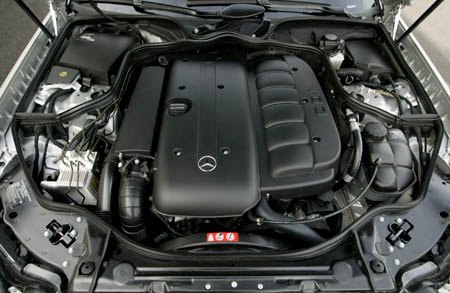

















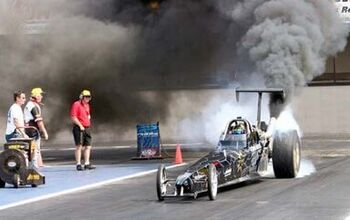
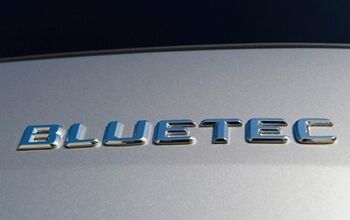
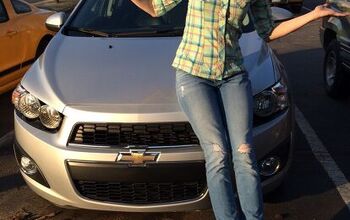







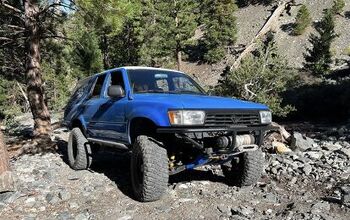





Comments
Join the conversation
The higher the price of fuel the more the initial cost is justified. We might not be there yet, but we soon will be unfortunately.